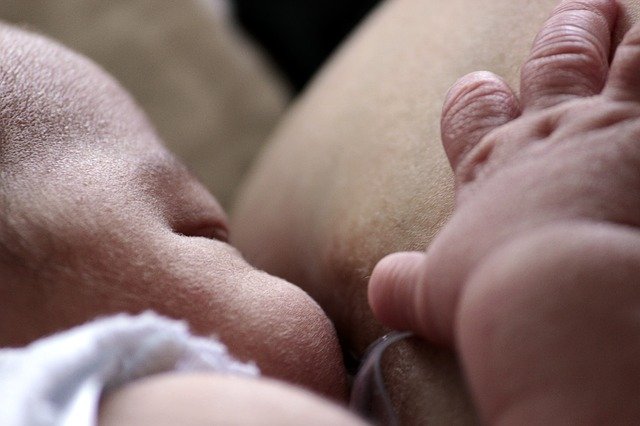ADA Stresses Breast Feeding for Babies.

First off, we want to state that at our practice we respect whatever decisions new parents make concerning feeding their babies. We understand that there are many factors involved in the decision whether to bottlefeed or breastfeed. Either form of feeding can result in a happy and healthy child. Furthermore, we are not a pediatric specialty practice, and we are not experts on infant care.
Because August is Breastfeeding Awareness Month, the American Dental Association released an article on the dental benefits of breastfeeding, and we thought we’d share. After all, they’re only babies for so long, and later on your tots may become our patients. As parents you will want to consider the long term, as the decisions you make now may affect your child for a lifetime! So, if you are expecting or are considering becoming pregnant and still are on the fence about which feeding method to choose, you might take into consideration these six facts, provided by the ADA.
Breastfeeding may help build a better bite.
A June 2015 study from Pediatrics found babies exclusively breastfed for six months were 72% less likely to have crooked teeth (malocclusion). These babies were seen to be less likely to develop open bites, crossbites and overbites than babies who breastfed for less than six months or not at all.
You don’t have to wean when your baby gets teeth.
The American Academy of Pediatrics recommends breastfeeding for the first year of a baby’s life; the World Health Organization encourages moms to go for two.
“As it goes with breastfeeding, every child is different, every mother is different,” says Dr. Ruchi Sahota, mother and American Dental Association spokesperson. “You should stop breastfeeding when you think it’s the best for you and the baby but not just because the teeth come in.”
Breastfeeding reduces the risk for baby bottle tooth decay.
Another benefit of exclusive breastfeeding, Dr. Sahota says, is a reduced risk of baby bottle tooth decay, the frequent, prolonged exposure of the baby’s teeth to drinks that contain sugar. This type of tooth decay often occurs when a baby is put to bed with a bottle – even ones containing formula, milk or fruit juice.
Breastfed babies can still get cavities
Can breastfeeding cause cavities? Yes, it can. Although natural, breast milk, just like formula, contains sugar. That is why, breastfed or bottlefed, it’s important to care for your baby’s teeth from the start. A few days after birth, begin wiping your baby’s gums with a clean, moist gauze pad or washcloth every day. Then, brush her teeth twice a day as soon as that first tooth emerges. Use fluoride toothpaste in an amount no more than a smear or the size of a grain of rice.
Need dental work done? Double check your medications.
If you need to have a dental procedure that requires medication while nursing, check with your dentist, personal physician and pediatrician to make sure it is safe for baby. “It’s important to know there are antibiotics we can give you that won’t hurt the baby,” Dr. Sahota says. “It’s not only safe to go to the dentist while you’re pregnant and while you’re nursing, it’s very important to do so for the best health of your child.”
Mom, take care of yourself.
This should go without saying, but some new moms neglect their own health care while struggling to care for their newborns. It is as important an ever to care for your own dental health as it was before baby came along. Brush twice a day. Floss daily. Stay hydrated, and look out for teeth grinding, which seems to be more common in new mothers.
Dr. Curtis H. Roy & Associates has been serving Acadiana residents since 1970. Find the practice on the Web at www.drcurtisroyandassociates.com, visit the office at 3703 Johnston St., Lafayette, call 337-981-9811, and look for it on Facebook and Twitter
NOTE: The content on this blog is not intended to be a substitute for professional medical advice, diagnosis, or treatment. Always seek the advice of qualified health providers with questions you may have regarding medical conditions.


